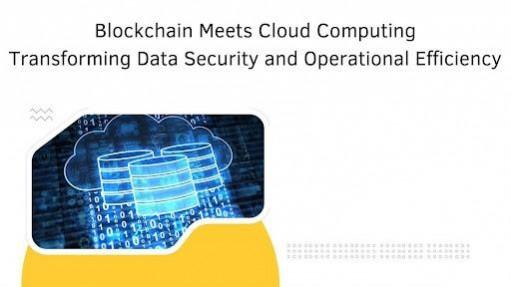
In a rapidly evolving digital landscape, blockchain and cloud computing spearhead a transformative synergy redefining business operations. This article delves into how this integration addresses persistent challenges while unlocking innovative industry opportunities. Drawing from recent insights by Dorai Surendar Chittoor, an expert in technological solutions, it highlights how these technologies converge to enhance security, transparency, and efficiency.
Rethinking Security with Blockchain
At the heart of blockchain-cloud integration lies a solution to one of cloud computing's most pressing challenges: security. Blockchain's immutable ledger system, characterized by decentralized data storage and cryptographic protection, significantly minimizes data breaches and unauthorized access. When combined with traditional cloud systems, it introduces a robust security framework.
This hybrid model employs distributed validation, requiring network-wide consensus for data modification. Such a structure drastically reduces vulnerabilities associated with centralized cloud systems. Additionally, advanced cryptographic techniques, such as homomorphic encryption and zero-knowledge proofs, enhance data privacy, ensuring that sensitive information remains confidential even during processing.
Enhancing Transparency and Traceability
Blockchain's immutable nature brings unparalleled traceability to cloud operations. Every transaction or data modification is recorded with a timestamp and unique identifier, creating a transparent audit trail. This capability is invaluable for industries where regulatory compliance and accountability are paramount.
Incorporating blockchain into cloud platforms provides real-time tracking of data movements. Organizations can now monitor data from creation to deletion, maintaining a clear record that adheres to compliance standards. This level of transparency not only builds trust but also facilitates better decision-making.
Interoperability: Bridging Systems Seamlessly
System interoperability has long been a stumbling block in cloud computing. Blockchain integration addresses this by introducing standardized protocols and smart contract interfaces, enabling seamless platform communication. This innovation allows various cloud services and applications to interact securely and efficiently.
By establishing universal authentication systems and automated compliance checks, blockchain-cloud frameworks ensure consistent adherence to security protocols. This results in a unified ecosystem where platforms can exchange data without compromising integrity or security.
Performance Optimization in Integrated Systems
A notable challenge of blockchain-cloud integration is maintaining performance without sacrificing security. Innovative solutions such as advanced sharding techniques and layer-2 scaling solutions address this concern. These methods improve transaction speeds while ensuring the network remains secure.
Smart contracts play a pivotal role here, streamlining processes by automating complex operations. Adaptive resource allocation mechanisms optimize system performance by dynamically responding to varying workload demands. Such advancements demonstrate the potential for these integrated systems to operate efficiently, even at scale.
Addressing Challenges with Innovation
While the potential benefits of blockchain-cloud integration are immense, they come with their own set of challenges. Scalability, interoperability, and performance optimization remain key hurdles. However, innovative strategies are paving the way for overcoming these barriers.
For instance, developing consensus mechanisms prioritizing efficiency and security can mitigate performance bottlenecks. Similarly, implementing phased integration approaches helps organizations adapt gradually, minimizing disruption while transitioning to these advanced systems.
The Road Ahead
The future of blockchain-cloud integration is bright, with trends like quantum-resistant protocols and edge computing set to revolutionize the field. Evolving smart contracts promise to handle complex business logic, enhancing utility. Industries are shifting from pilots to large-scale implementations, with financial services adopting decentralized finance and healthcare focusing on secure patient data management. These advancements underscore the increasing acceptance and practical applications of blockchain-cloud solutions across diverse sectors.
In conclusion, Dorai Surendar Chittoor's insights underline the transformative potential of blockchain integration within cloud computing. This convergence sets a new benchmark for enterprise solutions by addressing fundamental challenges and enhancing operational capabilities. As businesses navigate this evolving landscape, emphasizing innovation, security, and efficiency will remain key to unlocking its full potential.



![Ultrahuman launches Ring PRO, free charging case with more than just power and Jade AI [details] Ultrahuman launches Ring PRO, free charging case with more than just power and Jade AI [details]](https://data1.ibtimes.co.in/en/full/829151/ultrahuman-launches-ring-pro-free-charging-case-more-just-power-jade-ai-details.png?w=220&h=135&l=50&t=40)











![Ultrahuman launches Ring PRO, free charging case with more than just power and Jade AI [details]](https://data1.ibtimes.co.in/en/full/829151/ultrahuman-launches-ring-pro-free-charging-case-more-just-power-jade-ai-details.png?w=220&h=135)

